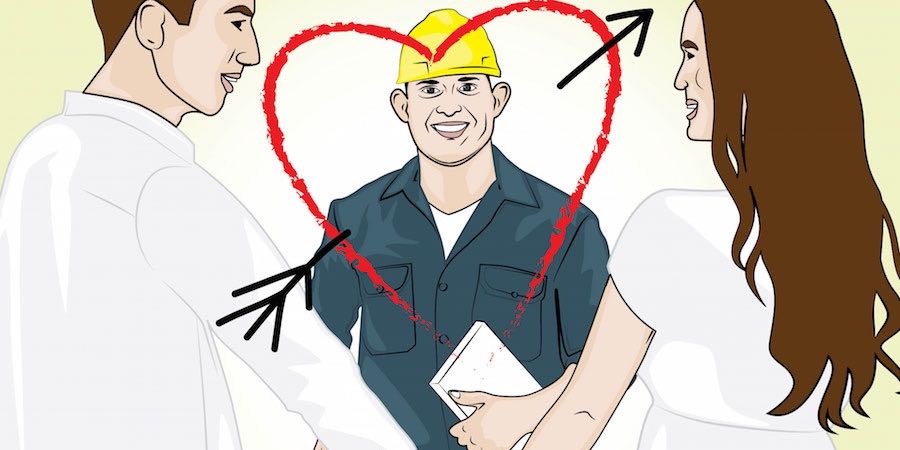By Nathan Deuel for Realtor.com
For a half-decade, I lived in the Middle East. My wife worked as a reporter, and I was mostly taking care of our daughter. We lost my dad, became better parents, and, through it all, managed to hold on to an apartment we’d bought years earlier in New York City. But when we tired of promising the co-op board we’d come home some day, we sold it, handing over our keys to a nice lady from England, and moved to a rental in a seaside town in Southern California.
Before long, we realized we wanted to stay in that area forever. My wife found something for sale, not far away, in need of repairs.
It was a ramshackle cottage, a couple of blocks from the beach, on a tiny lot, with a compact but efficient interior. Standing on the front deck, even if it was across the street from a bus depot, I felt like I was on the prow of a small and snug boat. I fell in love.
So we put in a bid, 20% below the asking price. And it wasn’t rejected. So why was this place even remotely in our price range? What horrors lay in wait? Our next step would be to find a home inspector—a great one.
A basic inspection, I learned, could tell us if we needed a new roof, if the insulation was sufficient, and whether there was evidence of water damage. But especially for those of us coming from New York City, where we’d owned an apartment the size of a couple of minivans and the super put in new windows and fixed the roof without a peep from us, a rigorous home inspection felt not just desirable but also necessary.
So I called five inspectors, asking them a variety of questions: How long had they been doing inspections? Were they familiar with Venice? How much did they charge? By far the most compelling among the group—with a mix of authority, charm, and knowledge—was George D. Baral of Reliance Inspection.
George is a Stanford MBA with a graduate degree in chemistry who has been inspecting homes for 28 years. He showed up early and carried a tape recorder. The owner’s Realtor®, a big, muscled dude, was present, too. While George disappeared into the house, the agent gave me a thumbs-up, saying the whole thing would probably take an hour or so. George took five.
He looked under the sink. He opened all the drawers. Tested the oven. Started the dishwasher. Pretty soon all the taps were running in the house, and George was talking like mad into his recorder, noting tiny problems: Too few inches between toilet and tub. A missing bolt on the garbage disposer. A small crack in a living-room window.
He climbed underneath the house. Eventually, he was scrambling over the roof, all the while talking furiously into his recorder.
A few days later, George emailed a multipage document listing everything wrong with the house, from a too-short exhaust pipe to electrical sockets that needed updating.
Because of his battle plan, not only did we manage to stick with our low offer but, when George’s best-case/worst-case predictions about the sewage situation turned out to be on the very bad end of his prognostication, we even negotiated an additional $10,000 credit. (It turned out that we would need to replace all the freshwater piping as well as dig up and replace the sewer lines.)
A good inspector, in other words, not only helps find flaws, but can also supply a report that serves as a kind of construction plan.
Moreover, if the inspector was—like George—an upstanding member of the larger network of service providers, he or she might know some good plumbers and painters. When we were ready to redo our walls, for instance, I called George, who recommended someone amazing.
Since not all of you can hire George, I asked him how others should vet their potential home inspectors.
“Ask them how many they do a day,” he says. “The main reason that I’m as successful as I am is the time I spend with people.” Rather than the three a day that most home inspectors do, George’s average is one.
So look for lots of experience. Look for energy and drive and an ineffable passion for getting to the truth. Talk to potential candidates. Drill down on their technical knowledge, patience, and dedication to their highly specialized craft.
And don’t just go to the cheapest person. Among the inspectors I considered, George’s fee was the highest by a hundred dollars. But I can’t even begin to calculate how important George has been to the process of settling down, and into our new life.

